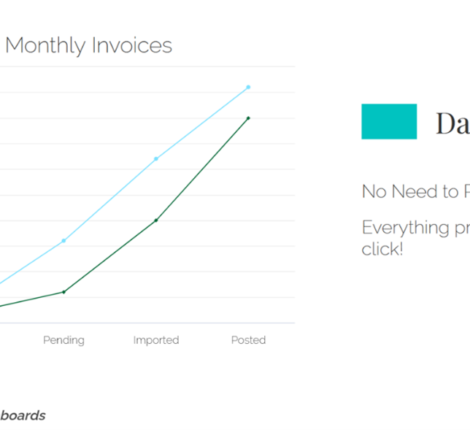4 ways retailers can harness disruption with Oracle Autonomous Database
By Bertrand Matthelie
SENIOR PRINCIPAL PRODUCT MARKETING DIRECTOR
Rapid and profound disruption is impacting the retail industry. The uncertainty, speed, and frequency of unpredictable events, such as the COVID-19 outbreak, are prompting retailers to re-assess their operating environment, suffer higher costs due to enhanced safety precautions for both staff and customers, increase home delivery services, and improve agility in response to market requirements.
While retailers may have adopted digital platforms to enable e-commerce, the rationale and imperative for a true, omnichannel-enabled customer experience has never been more apparent. New technologies, agile competitors, as well as new, demanding shopper expectations are transforming the market. Now more than ever, retailers need a better understanding of consumer needs and a willingness to recognize, embrace, and become a catalyst for change.
So how can you not only survive disruption but harness it for growth? We’ll illustrate through customer stories 4 ways retailers are leveraging Oracle Autonomous Database to do so.
1. Monitor results in real-time to outpace the competition
Dou Yue’s 30 restaurants across China are committed to serving traditional Chinese cuisine on premises and for takeout. Faced with intense competition, especially from caterers and internet-based food service providers, improving their ability to analyze data to support marketing, sales, finance, purchasing, and customer service was key. However, Dou Yue’s multiple, isolated legacy data platforms prevented the company from gaining the comprehensive, real-time insights it needed.
By deploying Oracle Autonomous Data Warehouse and Oracle Analytics Cloud on Oracle Cloud Infrastructure, Dou Yue integrated the data from multiple business systems onto a single, cloud-based platform. The financial team can now pull revenue, inventory, and other data, by restaurant, for company executives to act on. For example, when a restaurant posts a revenue decline, Dou Yue execs can analyze the environmental conditions (traffic, weather), sales model (dine-in or takeout), as well as menu and pricing in the region where the restaurant is located to determine the root causes and adjust strategy. By analyzing historical trends, repeat-consumption, and other data, Dou Yue is now able to understand which dishes customers like and adjust them, or create new ones, in a timely manner. They can additionally determine which commercial buildings tend to order the most take-out to inform targeted marketing campaigns and where to locate future restaurants.
Autonomous Data Warehouse is the only complete solution that uses a converged database providing built-in support for multimodel data and multiple workloads such as analytical SQL, machine learning, graph, and spatial. It requires no integration with other services, making it easy to load any data, run complex queries across multiple data types, build sophisticated analytical models, visualize information, deliver dashboards, and develop data-driven applications.
Dou Yue is certainly not an isolated case. For instance, Hong-Kong based Maxim’s is a leading food and beverage company operating 1,700 outlets throughout Asia, including quick service restaurants, bakery shops and more. It is also the licensee of renowned brands including Starbucks Coffee, Genki Sushi and The Cheesecake Factory.
They rely on Oracle Autonomous Data Warehouse and Oracle Analytics Cloud to collect and analyze 600,000 transactions per day, combined with ERP, external demographic, and social media data. Using this solution, they have gained real-time insights into customers’ buying behavior and purchasing habits to alter menus and dishes as preferences change. The results have improved marketing promotions, operational efficiency, and site selection for further growth expansion.
Autonomous Data Warehouse eliminates virtually all the complexities of operating a data warehouse – automating provisioning, configuring, securing, tuning, scaling, patching, backing up and more – enabling Maxim’s to accelerate time to insights while reducing costs and improving security.
“Our catering group manages over 70 brands with support from Oracle Autonomous Data Warehouse for efficient analysis of sales data and customer preferences, which ultimately improves our overall competitiveness. Its self-driving, self-patching capabilities provided costs savings and improved data security.” says Maxim’s Caterers Ltd’s Chief Financial Officer Keith Siu.
2. Boost expansion beyond the core business into adjacent areas
The Abu Dhabi National Oil Company for Distribution (ADNOC Distribution) is the leading fuel distributor in the United Arab Emirates. In addition to selling fuel, in each of its 360 service stations there are ‘Oasis’ retail stores, vehicle inspection stations and car washes. Leveraging the 3.5 million monthly point-of-sale transactions they process would enable them to understand how to better serve customers and maximize revenues.
Oracle Autonomous Data Warehouse enables ADNOC Distribution to harness data in real-time. It brings a detailed view of customer behaviors and preferences by analysis of products by range, category, and store, together with purchasing and promotional-responsiveness data appearing on customer loyalty cards.
As a result, the company can drive greater precision in its marketing initiatives, innovate with new products, and build customer loyalty further; always with the right product in the right place at the right time. It can also plan in-store offers in conjunction with local partners, such as fast food and coffee outlets, with a clearer view of likely outcomes and offtake; this forecasting ROI beforehand and measuring achievements against promotional objectives after any activity.
Relying on Autonomous Data Warehouse furthermore enabled ADNOC to reduce costs by 50% vs their on-premises solution, and to decrease DBA workload by 60% with automated index creation against 650 million transactions, achieving up to 100 times better query performance.

Similarly, PTG Energy in Thailand operates 1,800 fuel service stations and over 200 convenient stores. Relying on Autonomous Data Warehouse helped them reduce the time to insights from hours or days to minutes, empowering retail business managers to improve results.
3. Improve inventory management
It takes a lot to get a perfectly ripe fruit into the hands of a customer. With its fast-growing business and perishable products, Shenzhen Pagoda relies on data to get its fruits to the right store at the right time, taking into account each store’s preferences and consumption patterns. Managing and analyzing all that data is a massive job, and the company needed a data warehouse solution backed by automation and intelligent data management that would help it make fast decisions. It also needed a solution that would greatly reduce costs and its IT team’s involvement. “To keep satisfaction high, we want to continuously supply differentiated and personalized fruit products for customers in different stores,” says Shenzhen Pagoda’s CMO Shen Xin.

Oracle Autonomous Data Warehouse uses machine-learning capabilities that enable Shenzhen Pagoda to load and integrate data from multiple sources from membership information, historical consumption patterns, marketing, inventory, and weather to build profiles of its stores and customers. Machine learning also helps them run reports from bigger datasets faster to determine the best strategies for supply chain and inventory management, with less database administration, for 20 distribution centers and 4,000 retail stores across China.
Shenzhen Pagoda can now predict sales levels for the next week with an 84 percent success rate, ensuring freshness and profits. The accurate prediction of sales enables each store to decide on inventory and promotions. This enhances the consumer experience while reducing inventory backlog, key to delivering fresh products that meet their standards.
Autonomous Database accelerates the creation of Machine Learning models by eliminating the need to move data to dedicated Machine Learning systems. Oracle Machine Learning provides a collaborative interface for data scientists and analysts, with access to 30+ in-database parallel, scalable Machine Learning algorithms.
ImpulseLogic is an ISV with the same objective of helping retailers to maximize revenues while minimizing waste. Their StoreLogIQ solution powered by Oracle Autonomous Transaction Processing enables their customers to ensure product availability on the sales floor, and not only on the loading bay of the store. Thus, retailers can eliminate inventory distortion and benefit from Machine Learning and pattern recognition while reducing costs.
4. Implement loyalty programs
Drop Tank uses Oracle Cloud Infrastructure and Oracle Autonomous Data Warehouse to build fuel rewards programs, linking US gas stations owned and operated by scores of independent regional businesses. Drop Tank’s loyalty programs go beyond the gas station, partnering with other major third-party loyalty programs, such as Southwest Rapid Rewards® and Wyndham Rewards®.
“We need to be ready to handle 1 million transactions a day, so the scalability and enterprise-grade technology available to us in Oracle Cloud is very important” says Drop Tank’s CEO David VanWiggeren.
Autonomous Data Warehouse uses continuous query optimization, table indexing, data summaries, and auto-tuning to ensure consistent high performance even as data volume and number of users grows. Autonomous scaling can temporarily increase compute and I/O by a factor of three to maintain performance. Unlike other cloud services which require downtime to scale, Autonomous Data Warehouse scales while the service continues to run.
Are you looking to implement one of the above initiatives? Other ones? We’d love to hear from you and determine how Autonomous Database and other Oracle Cloud offerings can help you achieve your objectives.
Source: https://blogs.oracle.com/covid-19/4-ways-retailers-can-harness-disruption-with-oracle-autonomous-database-v5



